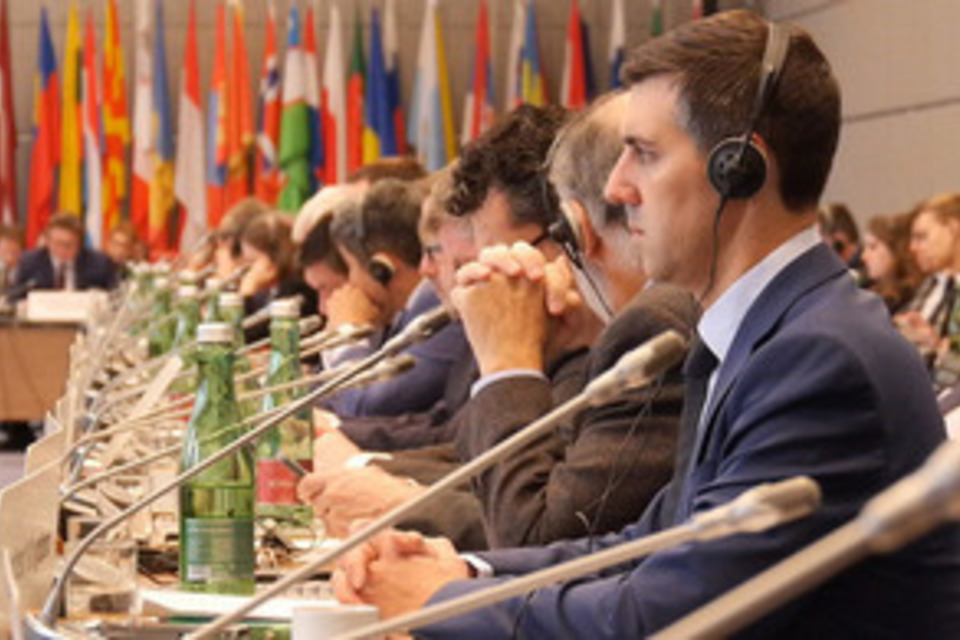Attacks on freedom of opinion and expression and media freedom in Belarus: UK statement
Delivered by Ambassador Neil Bush at the OSCE Permanent Council on 8 October 2020.

Mr Chair,
On 3 September, I delivered a UK-Canada joint statement expressing concerns about media freedom in Belarus. In that and subsequent statements, the United Kingdom highlighted the credible reports of violence against journalists, the actions by the Belarusian authorities to hinder journalists and the blocking of the internet. Unfortunately, five weeks after our 3 September statement, we continue to have serious concerns about the situation in Belarus.
There is evidence that the Belarusian authorities are deliberately targeting independent journalists and media organisations. Last month 60 journalists were detained and fined for the alleged illegal production and distribution of media products, and for participating in unsanctioned protests, despite being identifiable by their media vests and accreditation.
On 1 October, the Belarusian Ministry of Information suspended the status of Tut.by, one of the oldest independent media outlets in Belarus. Launched on 5 October 2000, the award winning Tut.by celebrated its 20th anniversary this week and is the most popular news portal in Belarus. The suspension prevents Tut.by from deploying journalists across Belarus and exposes their staff to criminal and administrative prosecution for working without accreditation.
On 5 October, the Belarusian authorities revoked the accreditation of all foreign media and introduced new and excessively bureaucratic processes of reaccreditation. We ask the Belarusian Delegation to explain how the new procedures will be conducted in a transparent manner and will not penalise and discriminate against foreign media outlets which have published articles critical of actions taken by the Belarusian authorities.
Mr Chair
The UK remains extremely concerned by the growing frequency of attempts to deter, control and censor independent media through the use of arbitrary detentions and arrests, internet shutdowns and restricted practice towards accreditation. We call upon Belarus to meet its international commitments to uphold freedom of expression, including a free and independent media.
Mr Chair
Last week, the delegation of Belarus claimed that they had responded to all the concerns that have been previously raised by delegations. As the examples cited in my statement demonstrate, that cannot be correct. Previous responses cannot cover what is an ongoing threat to the freedom of the media in Belarus.
We have all freely signed up to our OSCE commitments, including on freedom of the media. We repeat our call on the Belarusian authorities to respond fully to our ongoing concerns, and to meet their OSCE commitments.
Thank you